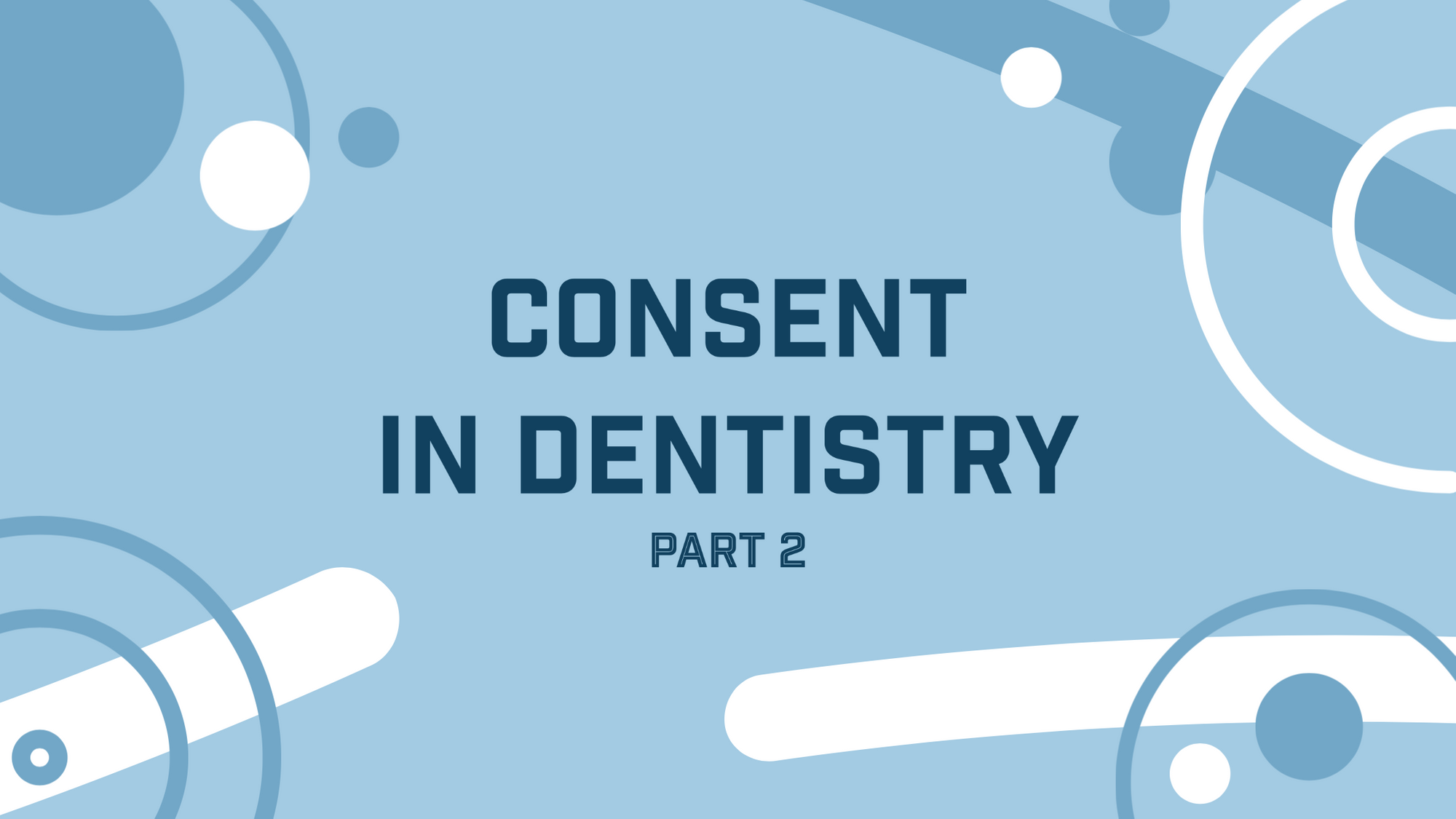Types of consent
There are 3 main ways to give consent:
- Non-verbal (implied) e.g., when the patient sits in the chair it’s implied that they accept for you to carry out an initial examination
- Verbal - this is needed for standard treatment like fillings
- Written- this is needed for procedures which have a larger risk e.g., going under general anaesthetic
Capacity
A range of abilities must be considered to determine whether a patient is competent to make this specific decision. Capacity is not an all or nothing concept and this scale means that certain patients may be competent to give consent in some cases but may not be competent in others. Assessing a patient’s capacity depends on: the patient’s age, intelligence, maturity, experience and the seriousness of the procedure.
For a patient to have capacity they need to understand the treatment, its purpose and any implications/side effects it may have as well as what may happen if treatment is not undergone. After all this is communicated the patient must be able to make an informed choice based off of the information given to them. The cost of the procedure as well as the alternative options with their associated benefits, risks, costs should also be mentioned. The patient must be able to communicate this with the practitioner, demonstrating proper understanding. In short, once the information about treatment is communicated, it must be understood, retained and evaluated by the patient and any questions they have should be answered. There is a presumption that competent patients are able to consent to or refuse treatment as they are able to comprehend the information.
A patient may be competent but make an irrational decision in the eyes of the health care professional- if this is the case the decision must still be respected. The patient must understand the information adequately and provided they do you cannot deprive the patient of decision-making power. In respecting autonomy, professionals will have to accept that the choice may not have the best possible outcome for the patient.
A patient’s capacity may be called into question for a host of reasons ranging from mental disability to pain, fatigue, shock or sedation. These factors will play a role in the patient’s ability to weigh up the information and make a choice.
Incapacity can also arise from the inability to communicate due to physical disability or being unconscious. Providing the patient has no way to communicate at all, the patient will be regarded as incompetent to make a treatment decision. Patients may become temporarily incompetent due to fear e.g., of dental treatment or other related phobias. People who have a mental illness are not necessarily incompetent and sometimes only certain aspects of their decision making may be affected.
It is important to note that a patient’s competence may be temporarily or permanently affected and so it must be reassessed at each point in time as capacity can fluctuate in some cases. If a patient who previously had capacity and they made a decision about their dental care or they may have a lasting power of attorney which is a legal document which allows a chosen person to give consent on their behalf (this is given when a patient may be expecting to lose capacity in the future). If neither of these apply you must act in the patient’s best interest and try to involve the patient’s family.
If someone is permanently incompetent no proxy consent exists. It is good practice to involve family and carers as well as acting in the patient’s best interest.
There are 5 main principles mentioned in the Mental Capacity Act of 2005 which have to be considered when checking capacity:
- To assume capacity unless established otherwise.
- To take all practicable steps to help the person to make a decision.
- To respect the capacitated persons decision, even if it’s unwise.
- The decision made on behalf of a person who lacks capacity must be done in their best interest. The decision made for the person must be the least restrictive option.
Words by Golasa Sheikh Akbari (3rd year dental student UoB)
